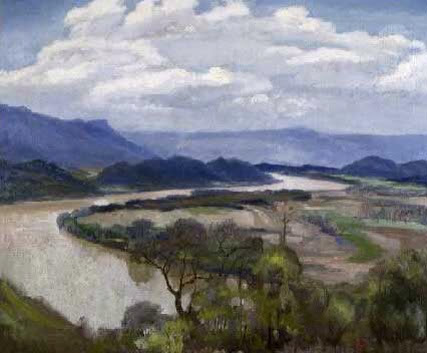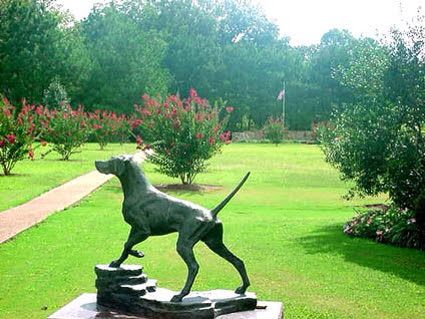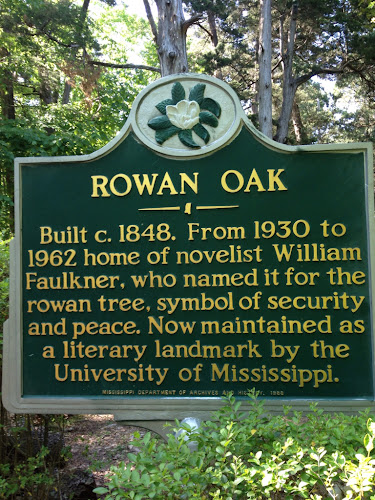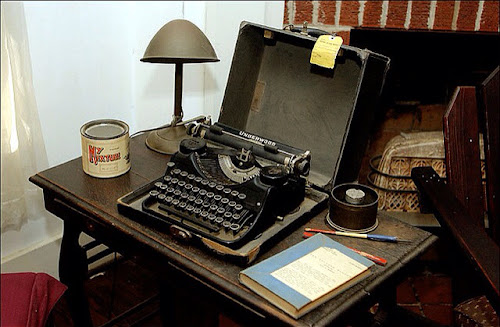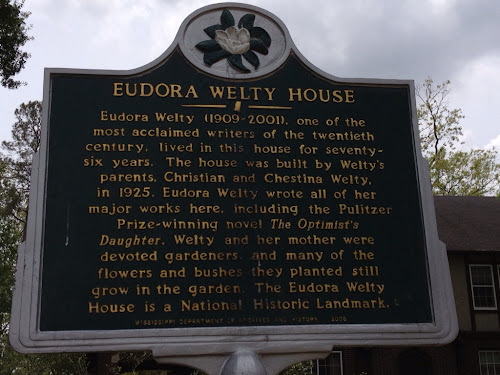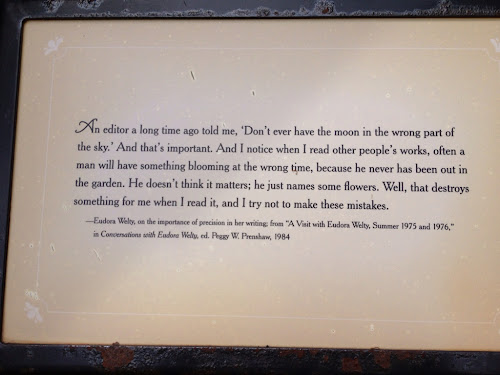Luke Goebel’s award-winning first novel, “Fourteen Stories, None of Them Are Yours,” shakes and rattles and trembles in your hands. From the first lines, the novel throws story at you, and you’d better watch your head. His voice grabs your wrist and promises everything and nothing. Words fly forward and backward—a lone eagle feather, a lost love, the moon, peyote, blanket flowers, myth, dogs, clouds, cigarettes, girls, chores, America—to speak and shout of loss and heartbreak. The ride is rough, but so is grief, and Luke Goebel, man-boy-kid of giant searching heart, knows how to tell this tale.
KARIN C. DAVIDSON: My first impressions of “Fourteen Stories, None of Them Are Yours” result from the telescopic and panoramic storytelling mode. Reflection pours out of reflection, while voice carves language, and lyricism rides rhythm. The rush of words and the nonlinear, bad-ass, spin-and-shoot-the-center-out-of-a-dime directions and redirections send the story reeling. And the impressions keep coming and curling in and fanning out and outright exploding.
There’s a crazy, amazing amount of energy in the writing, a Wild West version of Jack Kerouac’s “On the Road.” John Barth, David Foster Wallace, and Barry Hannah are all nodding. The narrator says as much: “I’m very much here but not, because I buy my own lies. So I need sex and sex and food and cigarettes and hands and skin and arms and the wild look of the words shimmering after not coming back right from being with Natives on Peyote.”
Luke, do the momentum and chase and surprise of these stories arrive in the middle of the night, as a gift of inspiration? Or is there a roll of butcher paper flying around the cylinder of your XE 5200, as you type nonstop, making myth in pica and elite?
LUKE B. GOEBEL: THANK YOU. You know, once you’ve written a book, why talk about it? I’m not being glib. I don’t know anymore. I already wrote it. That miracle of feeling is over. I can mutely point around a little with my hands. Seriously, now it belongs to the readers. I like how you say things—how you can talk about what you feel in the book. I’ve loved books but can’t talk about them that well. All I can say, first, humbly, is I’m very grateful.
The only notion I have is this: I wrote the book in stories, and I worked hard on my words. Then I had a miracle where the stories wove themselves along within my living into a novel shape. I couldn’t have figured it ahead of time. I bought a long RV bus just to have something to do and the next thing that happened was not plan-able.
I don’t get it unless it’s right in my pocket on fire, with something lighting me up. That close to the body. Like smelling something burning like hair on me. Or it’s hell and trying. Because of love and fear and caring too much and being strange, strange, strange, from birth. I’m always nervous and anxious, and that is usable energy. I feel like something is wrong with me in general a lot of the time, except when I’m out traveling free. I’ve always been trapped in the moment thinking it’s all on the line at every moment and it’s now now now now forever and it’s got to make something for itself! Now or never! That’s the feeling when I write. It makes me nuts. Seasick.
Some building pieces like “Boot of The Boot” came to me in streaks of clarity out of the madness with help from editors, like David McLendon, who were spurring me on, but most were a self-struggle to become able to dial a telephone or eat a ham sandwich. It was tiny routine education in letters, I believe. The moments of inspiration were delivery. The rest was bondage.
Then I had, most of them, the stories, fashioned, but a few were not…. Then we lost my brother. You know there are things I can’t say, so I wrote. Then it was true.
One day, on my way to my last editing session with the proofs, a white dove flew up and alongside my truck for so long and it was so gleaming white, heading to Dallas to a hotel to work. Not my brother, but a sign from someplace. Many animals have come to me, as in the story of the book. I worked mostly in hotel rooms on revisions and also on stories. They clear the junk. Hotels. You’re in the communal space. It’s where the reader lives, too. It’s common territory. You can lose yourself.
It didn’t happen by any design of forethought or foresight, the weaving of the stories, the structure of the book. That was just from paying attention. I should give my teacher some credit, my writing teacher. One of them in specific particulars. Gordon Lish. He taught me to train my attention on things that I already knew to train my attention on, but he gave me permission and praise. Just good Jewish and Irish wit to wit. Back in class, with his white peyote hair, and the lines of his face, and his hands out and up like a religious icon, like a child, like a lover, he said, something to the tune of, “Luke, my BOY, your attention is always in the right place. You’re a writer. But you don’t have it yet, so sit down. What you have is terrible.”
As for the XE 5200, that was bought from ACE Typewriter in Portland, Ore., over in St. John’s, and in fact it was given without payment, and without the owner even knowing my name he said, “Just send me a check,” all after I wrote and edited and submitted the final proofs for “Fourteen Stories, None of Them Are Yours.” So, I didn’t write that book on that typewriter. I feel like he could tell I wasn’t bullshit about using the typewriter when he let me take it without paying. He could tell I would use it for real good. That felt like a nice gift from the gods of faith.
That day I just talked about when I went in to the shop, bell dings, the owner was celebrating the day of the birth of his father who founded the shop. He had become 93 or 94 or 99. He was in the store, the father, with his cane and his little laugh, and I wished his father a mighty celebratory moment and the old man waddled with his tight little frame and butt in his pants, down away on the street, and the next thing… you know, I had no cash and it was 45 dollars for the unit. He wouldn’t take anything but cash, you know, so… it’s a wheel writer, the XE 5200 series. NOT like a great ball IBM 240 dollar number… and the son said just take it and mail him a check. Months later, went in and gave him cash, just before heading back to Texas. He smiled.
I took the typewriter and used it. We flew to Joshua Tree, Calif., via the Palm Springs Airport, where I got a loaned-out 19.5-foot Buick estate wagon, which my lady friend left for me, which was and is robin’s egg blue with fake wood paneling with no AC and off we all went into the 116 degree desert, not her and me, but only me and the typewriter and the Buick with my dog, Jewely, into a house with no AC in Joshua Tree, and walked around in my skivvies where Mojave Green Rattlesnakes—which are territorial and want to bite your ass and fill your cheeks with their venom, venom that contains blood toxins & neurotoxins both, and will make you require ten times the usual amount of antivenin as regular rattlesnake bites, because these green Mojave bastards are ten times as poisonous, stand four feet up from the ground just to mess you up psychologically, in the deserts sands around the boiling house—were roaming. There, as everywhere, no butcher rolls of paper flew as I kept on the trail of my second book. Which I’m still on. But I wrote. Felt good. Thrill to be trying, asking yourself: Well, do you? Can you? What? What can you accomplish?
Sun of the desert’s red and blonde. Sage, shadow of salt scrub, chaparral—racing through the cholla, saguaro, barrel and yucca and dust.
–Luke B. Goebel
DAVIDSON: Joshua Tree, Mojave Green Rattlesnakes, journey, your pup Jewely, stillness, and place. Out there is the landscape that calls to you. And in this first book, loss and heartache and love and grief create the landscape of the story—the story that is made of many stories. A journey created from past and present takes the narrator, in nonlinear directions, from childhood—lying in bed with his mother on a summer day—to coming-of-age and adulthood, when lying in bed with girls is happenstance. But the heartbreak that comes of great loss—that of his true love and his older brother, the Catherine and Carl of his life—forms the narrator and the narrative. East Texas, Ore., N.Y., Calif., Puerto Rico. The desert, the Tenderloin, the sea. Heart, soul, anguish, astonishment, envy, anger, and joy. Emotion is far from derivative; it loops and spins and takes us hard by the hand, reminding us, yes, there is direction here and it’s spun with emotion, so pay attention and follow along.
Tell us more about the ways in which you explore landscape, whether America the beautiful un-beautiful or an examination of the pancreas or the underside of the heart.
GOEBEL: I did everything you mentioned above. I wrote and went all those places, suffered those ailments, and yet it’s all fiction. And yet it isn’t at all. I felt it directly in living. I went to every one of those places, and I watched every one of those landscapes unfold, and I am carrying every one of those places. I am all the loves of my life, I hope. I love them still more than I can tell. I tried to tell it, the particulars of my love affairs with my beloved ones. And I am not talking about women. I’m talking about blood and family. People who are both to me, here and not here. I cannot un-live the life and its errors and beauties I have lived. I would love to try and go back and fix the mistakes. I am just as locked in and totally free to change as any living being human. The Buddha said we are a fathom high. That’s ninety feet high. Why can’t we get clear and find peace and love? Is that so insane? Once there was a way it seemed to just stop fighting. Now we have got to find love. LOVE. Crazy divining love. Love is the only thing that’s going to mean a thing to any of us.
—out there—the madness in me—and in her—the inevitable end of journey, a moment to rest and sleep like a child overlooking the slamming of sea—you know—to feel, before sleep, the listening, to listen, listen—and see and feel what is lost and cannot be regained, what has escaped the grasp, what every journey feels at the end of a long wild stretch where nothing is held and all is lost and fantastical.
–Luke B. Goebel
DAVIDSON: Yes, love. Love is thick and beautiful in your story, “The Minds of Boys.” A great, disturbing, wondrous story about boys, gone away from their mothers, living on the beach, stealing dogs, staring up at the clouds, dancing with girls. Its beauty is different from the other more structurally challenging stories of the novel, though, like those, it deals with archetype and myth.
Tell us about Keiko, the leader of the pack, and about how this story fits inside the novel.
GOEBEL: That was the one I felt the most like, how does this fit? Quite simply, it’s about the trap door opening and taking the best one away. It’s about my brother, but I wrote it long before then. There are such weird things that have happened in the time of my life. Sometimes it feels like it was always all fated and I always knew this story would unfold the way it has, I mean life. Other times, I just wonder, does anyone know who they are?
The story just makes sense there, I guess, because it brings in the beach, childhood, longing, disaster, losing the big-hearted leader who was never one to fit in societally. Who just was who he was, better than social pressure to conform and fit the times and the mold, you know, the pressure to hate oneself society gives you, this society does. The one who doesn’t need the merchandise to live with his giant heart and unreasonable beauty. The dream to live.
Then it also is where I spent a lot of time. In San Francisco. On the beach. And where I went with the RV to edit the story before that story in the novel and wrote more into the story “Out There,” which comes before “The Minds of Boys.” It’s just how the book came together with the RV trip in the long van with the generator and fans and windows and the world was my oyster where I owned real estate every place I went. I made decisions, and like Padgett Powell said, it came together as a lucky mess that ended up with a work deliberate and accidentally maybe more correct than not in its composition. You follow your instincts and attention to craft and recursion and themes and what delights you as a reader and write from that attention and the parts become miraculously whole, as if the world is alive. Because it is. Alive. Conscious. Working with you.
After rehab. After jail. After love. After the big never ending loss.
–Luke B. Goebel
DAVIDSON: The world—inside and out—is definitely alive in your novel. Mythmaking. Horseracing. Chasing a dream. And then, finally, chores. The “faceless” narrator is “trying to be a real man with a face.” He explains his aspirations in first, second, third person—pushing against identity boundaries—“trying to make something out of yourself, trying to figure out how to present yourself as yourself, making up your myth, finding a way in.” Structurally, this story has found a way into pain, never avoiding its sharpest edges, but leaning into them. Memory isn’t hardened, nor is it sentimental, and there’s regret, but there’s also pushing on into life, washing the truck, writing the stories.
What is the spring that you dip into to find story and structure, truths and untruths? Are there writers, teachers, landscapes, “you’ve been here in the world, have you not?” moments that lead you to understanding to then pounding the typewriter keys to translate that understanding?
GOEBEL: Yes.
Here is a brief list: Grandma, Grandpa, Carl, Marie, Dad, Mom (I’m sorry), Gordon Lish, Catherine (I’m sorry), David McLendon, Jesus, Elvis, John Lennon, Lolita, Barry Hannah, peyote, tears, Jewely, foxes, coyotes, mountain lions, Waylon Jennings, AA, rehab, nicotine, caffeine, the West, mountains, the smell of horses, prayer, church, the smell of high mass, Chanel No. 5, my father again, Wes Anderson, Paul Simon, New York City, Portland, rivers, fish, trout, my luggage, the sky, storms, rain, eating fish, deli food, greens, having a body.
























